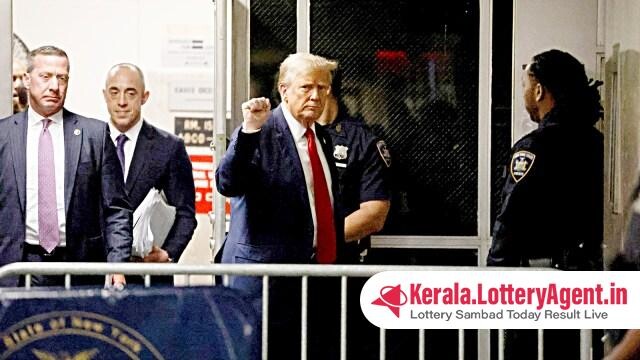
Betting on Donald Trump’s downfall has proven to be a massively profitable endeavor for a group of primarily amateur investors who have netted tens of millions of dollars in the past month alone. Their strategy has been to short sell shares of Trump’s social media venture, Truth Social, amid intense market volatility and trading spikes that often correlate with Trump’s public activities and statements on the platform.
A number of these investors, in interviews with The Associated Press, underscored that their decisions to place bearish bets via “put” options and other investment vehicles were grounded not as much in their personal distaste for the former president—though the majority have no affection for him—as in their belief in the dire financial performance of a company whose last year’s revenue was dwarfed even by an average Wendy’s burger outlet.
Elle Stange, an advertising executive from Boise, Idaho, articulated the skepticism shared by many when she pointed out the illogical financial state of Trump Media and Technology, saying, “This company makes no money. … It makes no sense.” Stange, who has profited approximately USD 1,300 from her trades, added, “He’s not as great a businessman as he thinks. A lot of his businesses go belly up, quickly.”
Another investor, Jeff Cheung, an IT security specialist in Seattle, bluntly predicted, “This is guaranteed to go to zero.” He made his assertion as the stock, which initially soared to USD 66.22 on the first day of trading, sharply declined to USD 38.49 a month later. Based on FactSet and S3 Partners data, an AP analysis estimates that traders employing puts and short selling tactics have notched paper profits to the tune of at least USD 200 million, though this figure doesn’t factor in the variable costs of the puts, which differ with each trade.
Despite their gains, these small-time traders—risking just a few thousand dollars apiece—admit that the stock’s volatility makes it too early to celebrate. Consequently, they’ve adopted a cautious approach of partially cashing out, letting some bets run, and remaining vigilant of stock movements from various places, whether that be a cubicle, the home, or even more privately, from the bathroom.
The market has delivered some nerve-wracking moments, like last week’s nearly 40 percent hike in the stock in merely two days, encapsulating the unpredictability of the market and the stock’s significant overvaluation according to some traders like Richard Persaud from Schenectady, NY.
For investors who have an ideological opposition to Trump, the opportunity to devalue Trump’s 65 percent stake in the company is a fringe political benefit. They fantasize about the possibility of reducing its value to nothing, which would obstruct Trump’s ability to utilize it for funding his legal defenses or his presidential campaign. Yet, with Trump’s holding still valued at around USD 4 billion, they acknowledge that there’s a long way to go.
Normally, betting against a stock requires rigorous due diligence—studying financial statements, gaining industry expertise, consulting with competitors, and sometimes employing forensic accountants to detect financial irregularities. However, the case of Trump Media appears straightforward to many, given its glaring balance sheet showcasing a staggering USD 58 million in losses last year on a paltry USD 4 million in revenue.
Manny Marotta, a legal writer and amateur trader from suburban Cleveland, breathes the stock’s volatility day in and day out, even as he observed signs of potential market manipulation when large investors gobbled up significant volumes of DJT stock.
Risk accompanies short selling, as it involves paying a fee to borrow shares of stock based on the bet that one can buy them back cheaper in the future and benefit from the difference. In the case of DJT, the borrowing cost soared to an annual rate of 565 percent at one point, pressuring short sellers to act quickly or see possible profits devoured by fees.
Trump Media’s spokeswoman, Shannon Devine, countered the negative outlook by asserting the company’s strong financial position with USD 200 million in cash and zero debt. She critiqued the AP for giving voice to avowed detractors of Trump.
An additional market danger is a “short squeeze,” which occurs if the stock price suddenly spikes, compelling short sellers to buy back shares swiftly to limit their losses, potentially driving the price higher and creating a self-perpetuating cycle of price increases.
Moreover, when the “lock-up” period barring Trump and other executives from selling their shares expires in September, a potentially perilous situation could emerge, as it could either lead to a dramatic sell-off or a significant buying spree, both outcomes likely to result in volatile price movements.
In response to these dynamic and risky market conditions, some traders like Cheung are hedging their bets by coupling put options with calls, leveraging whichever performs best to offset the losses of the other.
For those who seek a simpler method to bet against Trump, certain offshore casino-style betting sites present an alternative: wagers on the 2024 presidential election. Some oddsmakers, controversially, have already positioned current President Joe Biden as the frontrunner.












